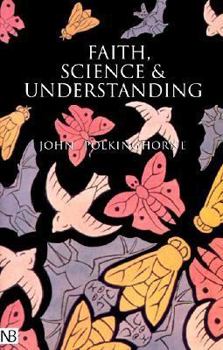Faith, Science and Understanding
Select Format
Select Condition 
Book Overview
In this captivating book, one of the most highly regarded scientist-theologians of our time explores aspects of the interaction of science and theology. John Polkinghorne defends the place of theology in the university (it is part of the human search for truth) and discusses the role of revelation in religion (it is a record of experience and not the communication of unchallengeable propositions). Throughout his thought-provoking conversation, Polkinghorne speaks with an honesty and openness that derives from his many years of experience in scientific research. A central concern of Polkinghorne's collection of writings is to reconcile what science can say about the processes of the universe with theology's belief in a God active within creation. The author examines two related concepts in depth. The first is the divine self-limitation involved in creation that leads to an important reappraisal of the traditional claim that God does not act as a cause among causes. The other is the nature of time and God's involvement with it, an issue that Polkinghorne shows can link metascience and theological understandings. In the final section of the book, the author reviews three centuries of the science and theology debate and assesses the work of major contemporary contributors to the discussion: Wolfhart Pannenberg, Thomas Torrance, and Paul Davies. He also considers why the science-theology discussion has for several centuries been a particular preoccupation of the English.
Format:Paperback
Language:English
ISBN:0300091281
ISBN13:9780300091281
Release Date:September 2001
Publisher:Yale University Press
Length:224 Pages
Weight:0.43 lbs.
Dimensions:0.6" x 5.1" x 7.8"
Customer Reviews
2 ratings
Interesting Meditations on Religion and Science
Published by Thriftbooks.com User , 18 years ago
John Polkinghorne, a theoretical physicist and an Anglican priest, has written a series of well-thought-out essays on the connection between science and religion. By avoiding the extremes of complete philosophical isolation and total integration, he provides us with not so much a conclusion as an understanding of an on-going dialogue. He takes an explicitly Christian approach to the subject, though he acknowledges that other faiths might come to different conclusions (and that the question of the existence of many different faiths deserves its own separate discussion.) Some key topics include: Historical relations between science and religion in universities. Being a person of both faith and science. The importance of divine revelation. Faith and science in the field of biology. Scientific theories and theological concepts of current interest. How God works in the universe. Discussion of other important workers in the science and religion field. All in all, this was a very worthwhile read. If you want to learn more about the connection between science and religion while avoiding the seemingly endless (and circular) discussions of "intelligent design," you will find that Polkinghorne has a very refreshing approach to the subject.
Recommended for students of science and theology.
Published by Thriftbooks.com User , 24 years ago
How can science be reconciled with a belief in a God active in creation, not evolution? Faith, Science & Understanding explores different aspects of science and theology, defending the place of theology in the scientific world and discussing how religious ideas and can still coexist within the scientific framework. Recommended for any interested in the science/theology debate.





